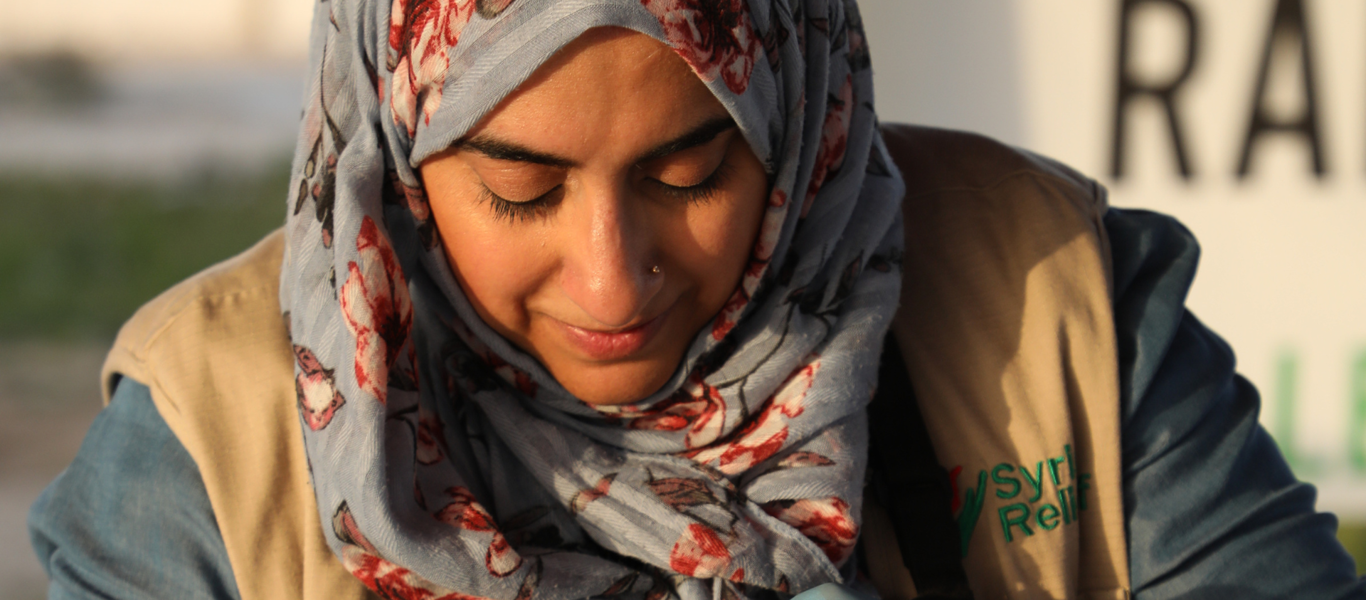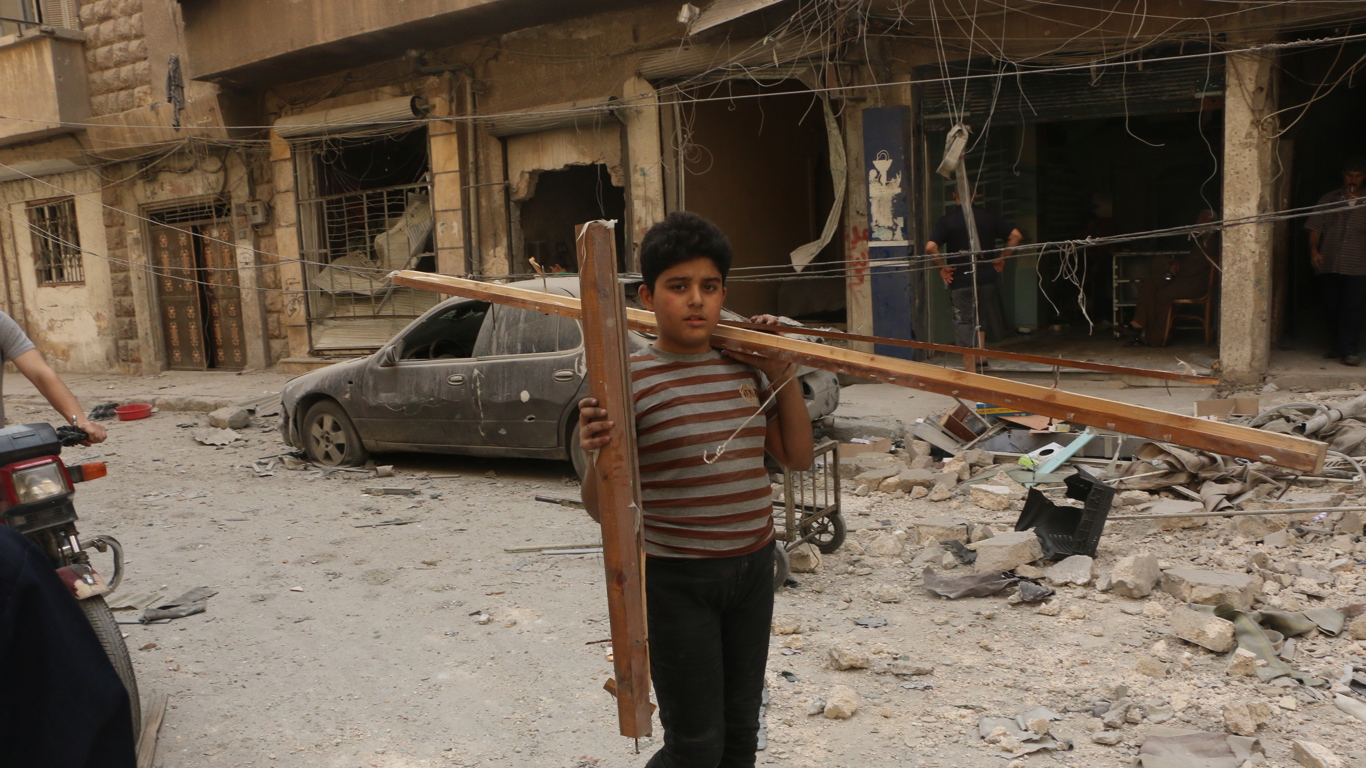
Thoughts From Our Female Leaders
As well as being a global day to mark the achievements of women, International Women’s Day is a call to action for accelerating gender equality.
To mark the occasion, we want to pay tribute to the female leaders within our organisation and the role they play in building a better future for women in all our projects across the world. We asked some of our female leaders about diversity, women’s empowerment and humanitarianism, as well as their own personal inspiration in work and daily life.
Dr Shameela Islam Zulfiqar the Fundraising & Humanitarian Mentorship Lead leads the community outreach programme here in the UK as well as mentoring fundraising deployment teams who visit the field to deliver both emergency and long-term relief.
The Global Head of Programmes, Javeria Hashmi oversees the diverse work of the global programmes teams, managing a full portfolio of long-term sustainable programmes and emergency relief.
Jessica Adams heads up the Marketing and Communications teams overseeing all campaigns, multimedia content creation and branding across the organisation. Her team amplify the voices of our beneficiaries to connect donors with needs of the beneficiaries.
What does being a humanitarian mean to you?
Shameela “It means looking after the wellbeing of my fellow human beings in every aspect of my life; regardless of who they are and what their background is or what walk of life they're from.”
Javeria “For me being a humanitarian means to have values and being passionate about walking the extra mile to help lessen the suffering of those in a crisis. It is being conscious of the circumstances of other people’s lives, and helping them on the basis of need, without discrimination.”
Jessica “It means helping people across the world who are facing suffering. It means making a positive change for all humans without discrimination.”
Is there anyone that inspires you in your career/daily work?
Shameela “My elders without a shadow of a doubt! We have a rich history of humanitarianism in our family. My parents and grandparents are some of the best humanitarians I know! My Nani-Jaan is 92 years old and still strives to give charitable support with her own hands. We are but a dilution of the generations before us. They inspire me every day to be better and never be complacent in the work we are doing. If there are people suffering in the world…There is more work to be done!
Javeria “Winnie Byanyima is one person who truly inspires me. She is the Executive Director of UNAIDS and an Under-Secretary-General of the United Nations. She is passionate and a longstanding champion of social justice and gender equality and led the United Nations’ efforts to end the AIDS epidemic by 2030. She was an early champion of a People’s Vaccine against the coronavirus that is available and free of charge to everyone, everywhere.”
Jessica “I am inspired daily by the late journalist Marie Colvin. She was a formidable force who focused on telling the truth about conflict and focused on human suffering. Her courage to tell the stories of innocent women and children forced readers to confront the human cost of conflict in places like Syria.”
What is the most important piece of advice you've been given?
Shameela “Keep yourself busy striving for others. Look after your fellow brothers and sisters in humanity. God will always look after you."
Javeria “Importance of self-care and continuous personal growth and learning.”
Jessica “Have confidence in what you’re doing, commit yourself to the cause, and remind yourself daily why you are doing things.”
Why do you think diversity in the workplace is so important?
Shameela: “Diversity is the colour of life. Without it...the world would be boring! The humanitarian sector is changing, and it is refreshing to see more women (including those of colour) fill roles and have the autonomy to help change the world in their own way, supported by organisations that facilitate their creativity and innovative ideas.”
Javeria: “Having a diverse and inclusive workforce ensures different perspectives and innovation where individuals with a broader range of talent come together. Furthermore, employee and other stakeholder engagement also increases.”
Jessica: “Diversity in the workplace, particularly in our department, is crucial for ideas development and problem solving. It gives wider perspective and helps to solve problems. Without diversity we cannot tackle important humanitarian issues across the globe.”
Why do you think women's empowerment projects are important for organisations?
Shameela: “Our organisational strengths lie in being able to relate to the struggles of fellow women and creating solutions that help lift mothers, daughters, sisters, widows, divorcees, and single female breadwinners out of poverty with dignity. Everyone in the world was created equal. However, with the passing of time, we see that women are afforded less opportunities to help themselves and their families - especially in refugee populations. By supporting women, we empower them, their children and entire communities enabling the wellbeing of all - not just a few.”
Javeria: “Women focused projects develop families and help communities and countries prosper. Empowering women equips them with the tools they need to have power and control over their own lives helping them enjoy independence and equal opportunities. Furthermore, when women feel safe, fulfilled, and lead productive lives, they reach their full potential. They can further contribute to the workforce and raise happier and healthier families.”
Jessica: “Fighting poverty and violence in communities means focusing on women and girls to end the inequality that keeps them and their families trapped in the cycle of suffering. Empowerment projects help women to not only lift themselves out of poverty but their communities too. By giving women the opportunity, knowledge, and equipment they need, they are able to support themselves and are given agency and independence in their own lives. This gives women the protection they deserve.”
How can women be more supported in conflicts and crises?
Shameela: “Women can be supported better in conflicts and crises by creating safe spaces for them to share their challenges and for organisations to provide solution-based campaigns that promote their wellbeing. Often, along with their children, they are the largest demographic in refugee camps. We need to get better at not just listening to these women but amplifying their voices and raising awareness about their struggles to our wider communities. Our livelihood programmes are doing just that - but we need to help so many more women raise themselves and their communities out of poverty to alleviate their crisis phase.”
Javeria: “As Major General Patrick Cammaert, Former UN Peacekeeping Commander said ‘It has probably become more dangerous to be a woman than a soldier in an armed conflict’. When wars begin women bear the heaviest burden of gender-based violence and poverty. However, women continue to be instrumental in providing for their families, often stepping outside traditional roles in order to survive. With access to opportunities, income and economic security, women are more likely to invest in health, education, and nutrition for their children and families. Education is also key as young girls miss out on critical years of formal education due to war and destruction to infrastructure. If educated, they are also four times less likely to get married young hence leading a healthier life. Women in or fleeing conflict also tend to be malnourished and food insecure. Provision of nutritious food can ensure that they themselves are healthy along with their families.”
Jessica: “Women in conflict and crisis urgently need access to education and opportunities to protect themselves. Without the chance to learn, girls are more likely to be trapped in the vicious cycles of poverty, poor health, forced labour and early marriage. It is our mission to get as many children, especially girls, as we can back into school and give them a chance to shape their future. Higher investment into and focus on livelihoods projects which help women support themselves is also crucial in a crisis. Across the sector women and girls can often be sidelined in crisis response plans and recovery efforts. This stems from the fact that women are often under-represented in leadership and planning around humanitarian crises.”

